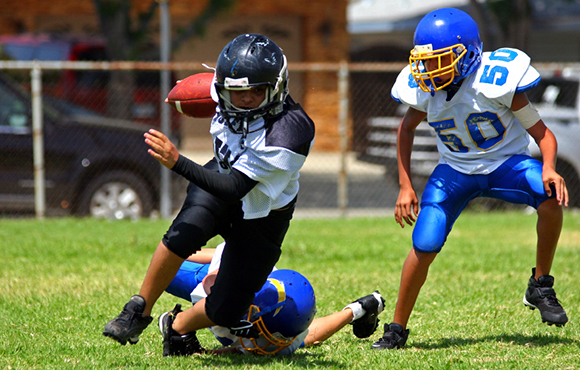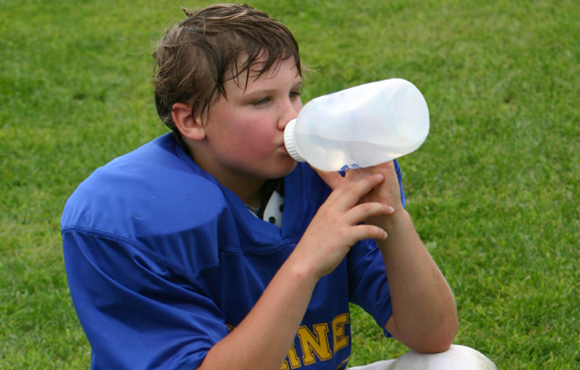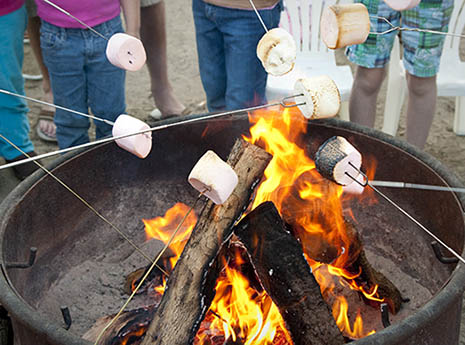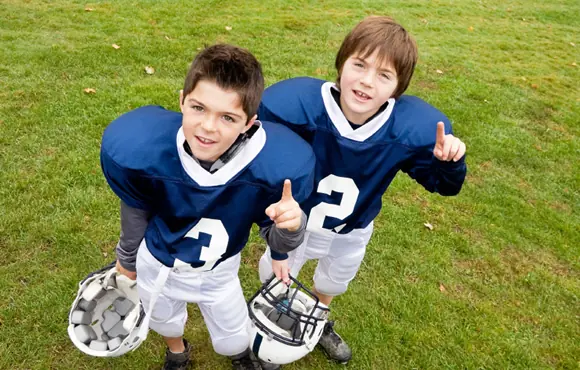Football is one of the most popular activities in the country for children ages 7 to 14. According to a 2010 study by USA Football, more than 3 million kids participate in organized tackle football programs each year.
If your child is interested in playing organized football, participating in a summer camp is an invaluable experience.
Expert Supervision
1 of 5Most camps have coaches and supervisors with years of football experience. Whether they're longtime coaches or former players, the staff members know the game well.
Football—like many other sports—is tough to leave behind. Once a player is no longer able to compete, it's rare for them to ditch the sport completely. Former players often try to find a way to stay involved, and coaching at youth camps is an ideal opportunity to do so.
According to FootballCamps.com, 250 current and former professional players and coaches instructed its camp participants from 2011 to 2014. Though some camps may feature former and current collegiate players and coaches as opposed to those with professional experience, having a staff with extensive knowledge and expertise is a common theme. The presence of these staff members provides the perfect resource for children hoping to learn the fundamentals of football.
Camaraderie
2 of 5
With 22 players on the field at once, football is the ultimate team sport, and this requires discipline from everyone. The accountability players need to be successful forces them to stick together and lean on each other every play. This will help develop a sense of camaraderie and brotherhood.
The benefits of learning how to work together with teammates go beyond sports. By participating in sports like football, children can develop valuable teamwork skills that will translate to everyday situations for the rest of their lives.
Competition
3 of 5
As with most sports camps, football camps often stress the importance of competition. Winning doesn't have to be the most important thing, but giving your best effort and competing to the best of your ability is expected and preached by staff members.
Learning how to try hard under tough circumstances is one of the most important habits children can establish, and the experience of a football camp can help facilitate this personal growth.
Heat
4 of 5
As you would expect, football camps in the summer tend to take place in hot weather. To make matters worse, helmets, pads and pants can make it feel even hotter outside.
Camps are often held on turf fields, which attract heat. A 2002 study conducted by Brigham Young University determined turf fields could reach temperatures up to 37 degrees hotter than grass fields. This means on a 90-degree summer day, temperatures on a turf field could reach 120 degrees or higher.
So, how can you combat this heat?
With several occurrences of heat-related illnesses in the past, camps tend to take all the necessary measures to keep players from overheating. Extra water breaks, mist machines and ice baths after practice can help make the conditions more bearable for children. Be sure to check with camp directors and supervisors to ensure precautionary measures will be taken.
Parenting and family Events Near You
Everywhere
-
No School Day: 4/18
Lombard, IL
-
School's Out Spring (Tuttle Park)
Columbus, OH
-
Bunny Home Visit
Frankfort, IL
-
Bunny Home Visit
Frankfort, IL







Discuss This Article